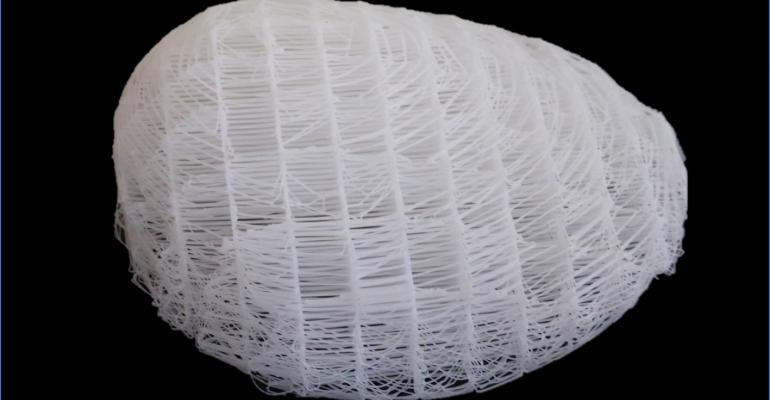
LeipZig, Germany-based BellaSeno GmbH, a company developing resorbable scaffolds using additive manufacturing technologies, reported the start of two clinical trials of its products in Brisbane, sponsored by its Australian subsidiary, BellaSeno Pty. Study recruitment has begun in the city, with the first trial expected to enroll 10 patients, and the second to enroll 20.
The first trial (NCT05451108) will be made up of patients with pectus excavatum defects, a common congenital chest wall deformity in which the breastbone is sunken into the chest. The second trial (NCT05437757) will enroll 20 patients in need of breast implant revision or congenital breast defect correction.
"We are delighted to spearhead the administration of novel, fully absorbable implants for soft tissue reconstruction applications,” said Dr. Michael Wagels, principal investigator of the pectus excavatum trial, director of the Herston Biofabrication Institute (HBI), specialist plastic and reconstructive surgeon at the Princess Alexandra Hospital, director of the Australian Centre for Complex Integrated Surgical Solutions (ACCISS) and senior lecturer at the University of Queensland. “There is a clear need for a safe alternative to contemporary alloplastic materials and operative techniques in pectus excavatum and breast surgery. Having customizable implants that resorb, leaving behind the patient's own tissues, is a big step forward."
READ: 3D-Printed Breast Implants Could Be the Next Big Thing in Plastic Surgery
A 3D printed scaffold made of medical grade polycaprolactone will be implanted using the company’s artificial intelligence-driven additive manufacturing facilities by a no-touch approach to correct reported defects, according to the clinical trial. During implantation, the implant is inserted in compressed form by minimally invasive surgery and then the structure unfolds. The patient’s own fat cells are harvested through simple liposuction techniques -- usually from the abdomen and thighs depending on tissue availability -- and injected into the implanted scaffold to graft it together. The scaffold acts as a resorbable frame, similar to the substance used for sutures and stitches that dissolve or resorb in the body, to support growth of cells. The scaffold will resorb within three to five years, according to the company.
"It is important to us that patients have access to healthier alternatives to permanent implants,” said Owen Ung, principal investigator of the second trial, director of the Comprehensive Breast Cancer Institute (CBCI), consultant breast surgeon at the Royal Brisbane and Women’s Hospital, and professor of surgery, University of Queensland. “There is a strong demand for restoring fully natural breast tissue without potentially risky remnants in the body. We believe that BellaSeno´s solutions can play an important role in addressing these needs."
The procedures are estimated to take one hour for the first trial, and two hours for the second trial. After the initial implantation, patients will be followed for two years to examine safety, efficacy, potential applicability to a wider range of tissue defects.
“Recovery from the operation can take up to one week,” the clinical trial study description wrote. “From that, the effectiveness, complications, and side-effects will be monitored for up to two years. The patient progress will be evaluated daily after the procedure while they are in hospital with clinical assessment of the wounds and overall status. On discharge, a number of surveys will be performed to document the progress at regular intervals, as well as MRI studies. The duration of follow up for the study is 2 years after implantation.”
“This trial is a very important step for us to demonstrate that our approach is not only safe, but leads to substantial improvements in terms of long-term safety, health, and quality of life,” said Dr. med. Tobias Grossner, CMO of BellaSeno. "We very much hope the trials once more confirm our scaffold-guided tissue reconstruction concept."
The trials are expected to have primary completion dates of January 1, 2025, and June 2, 2025, respectively.
About the Author(s)
You May Also Like




